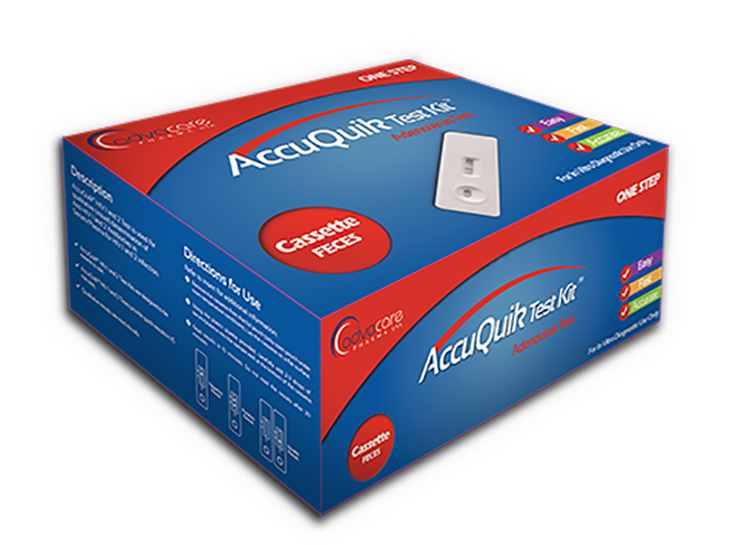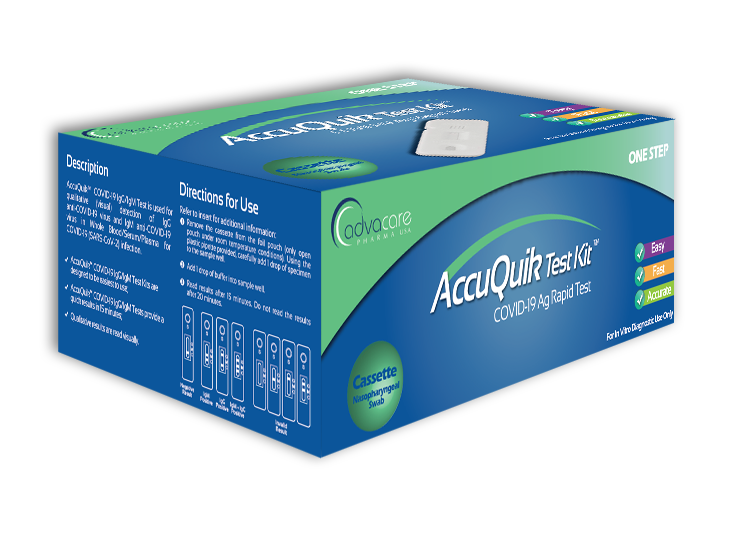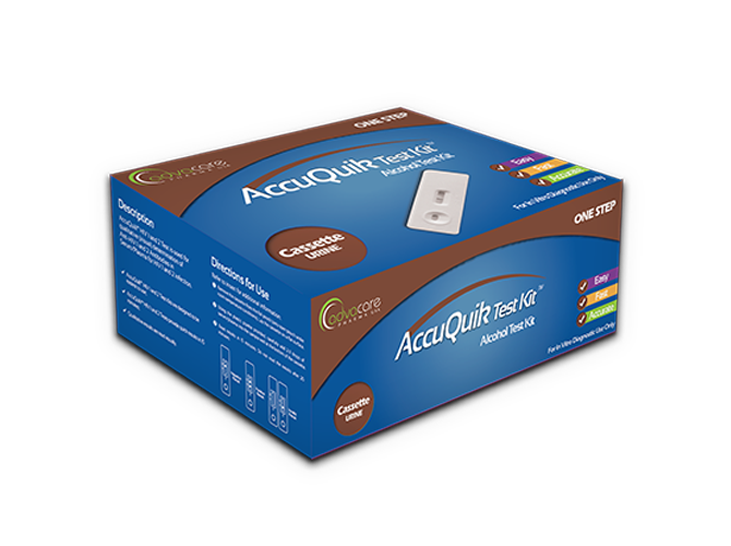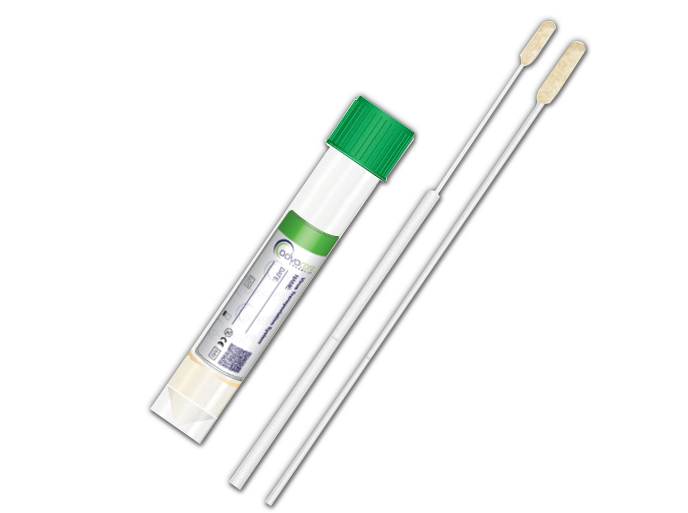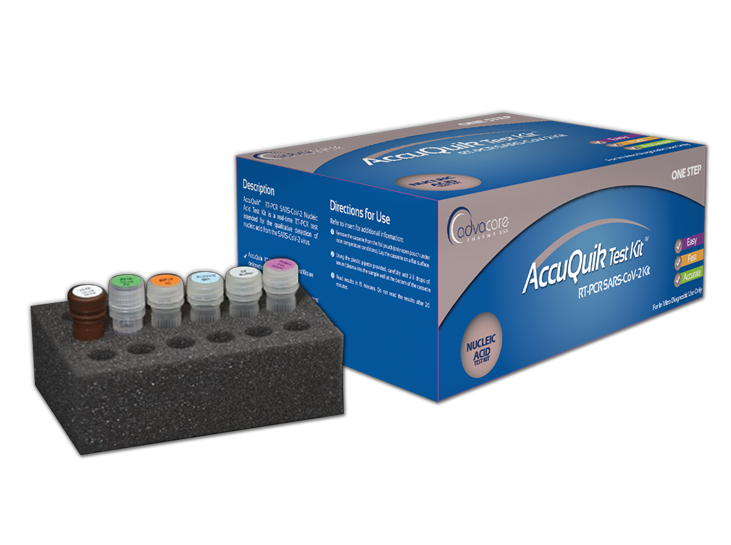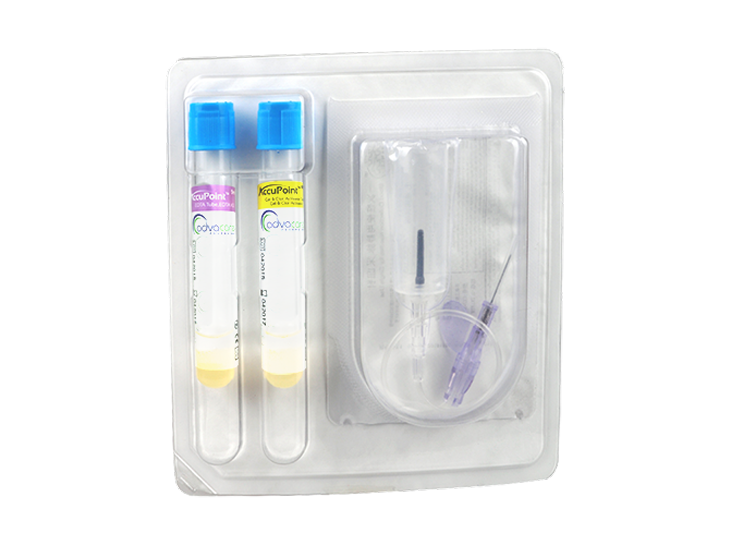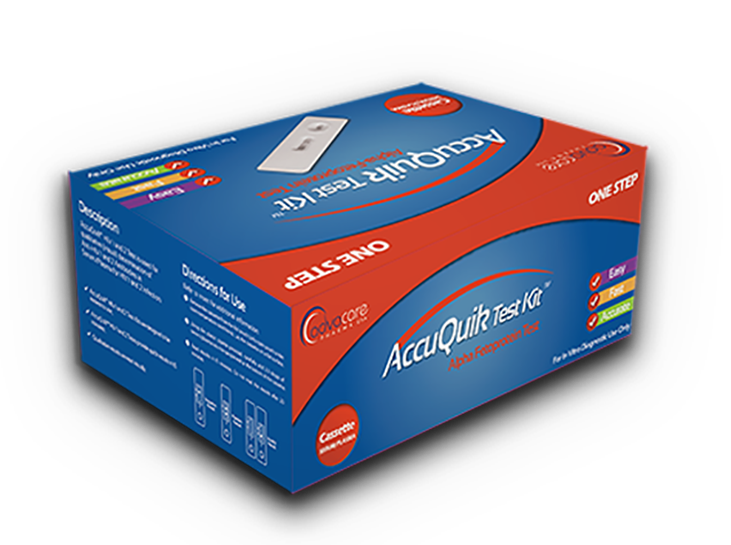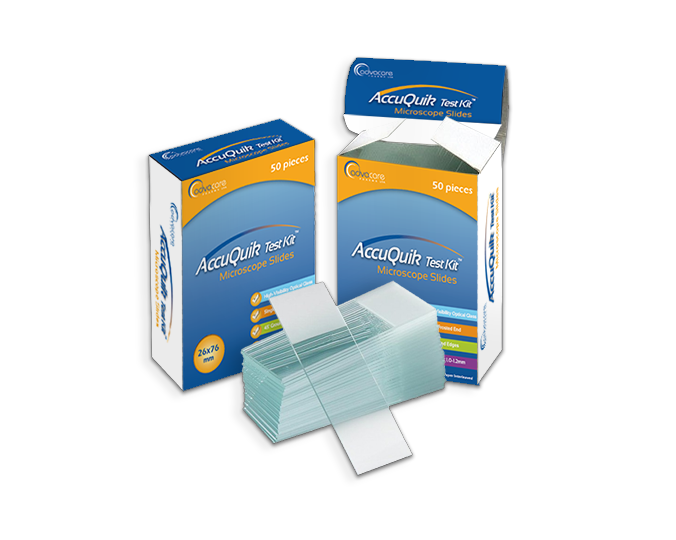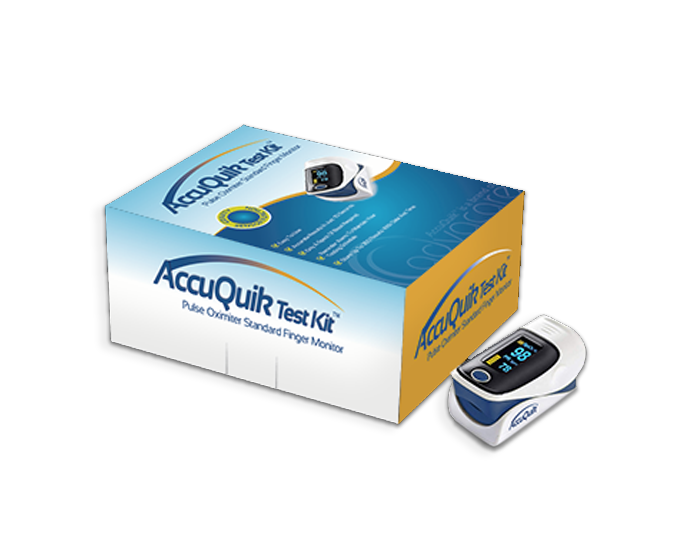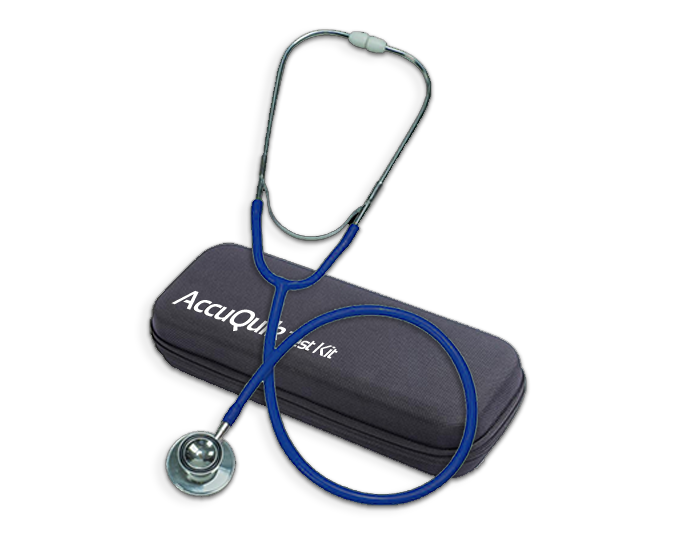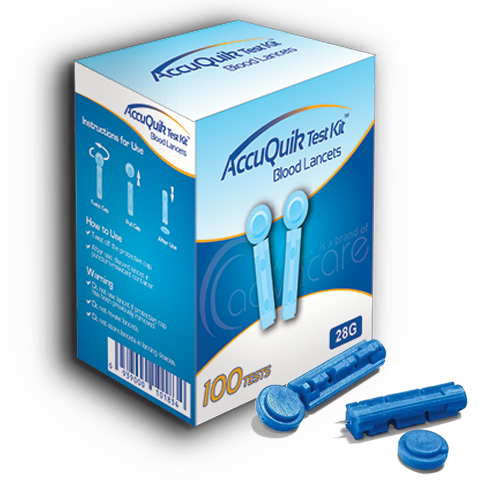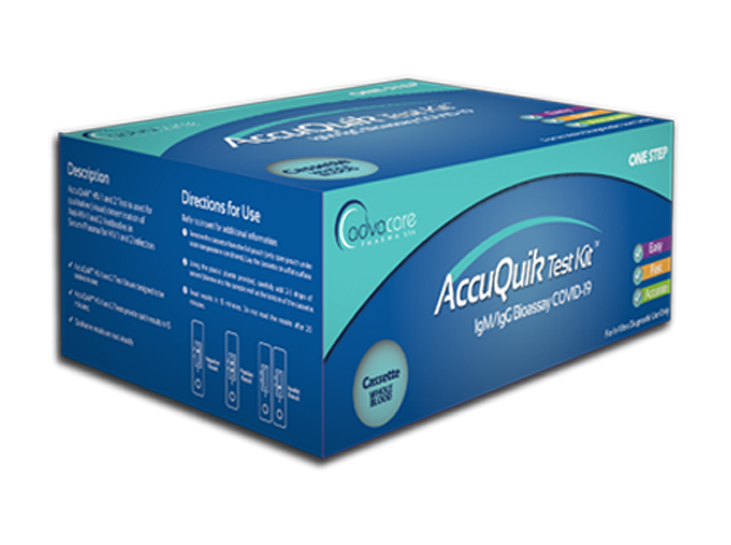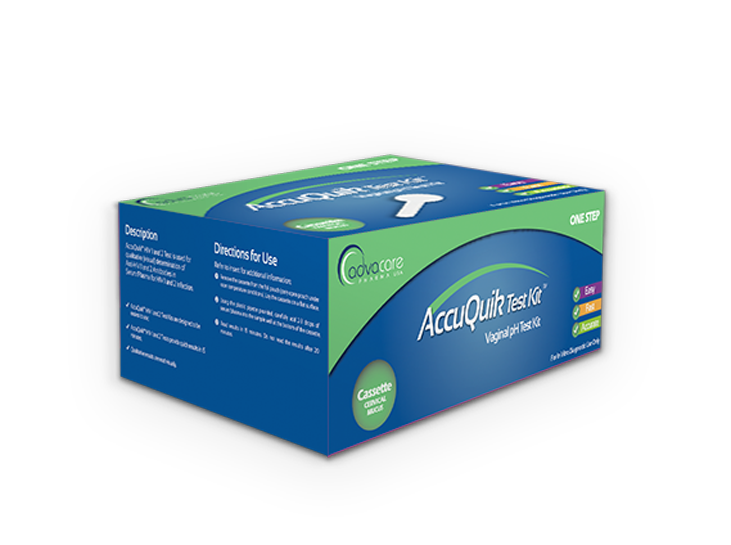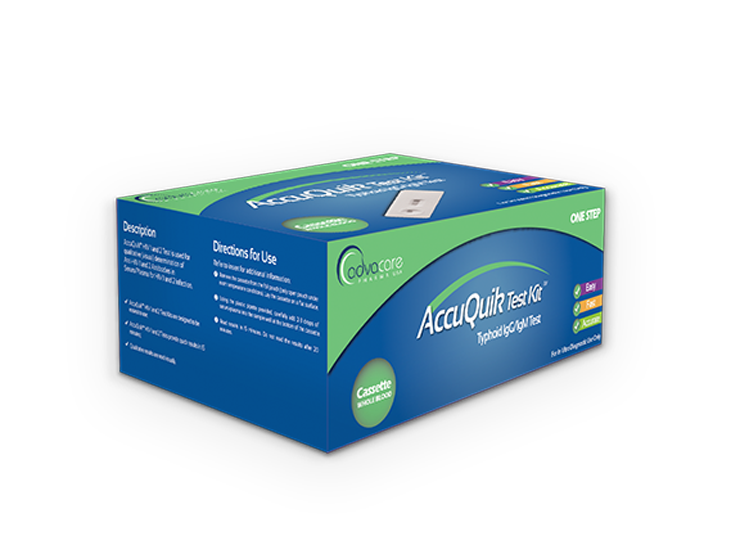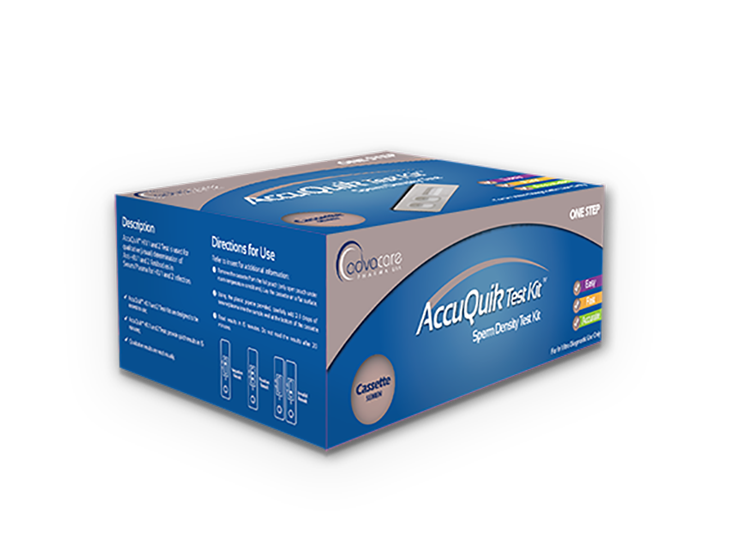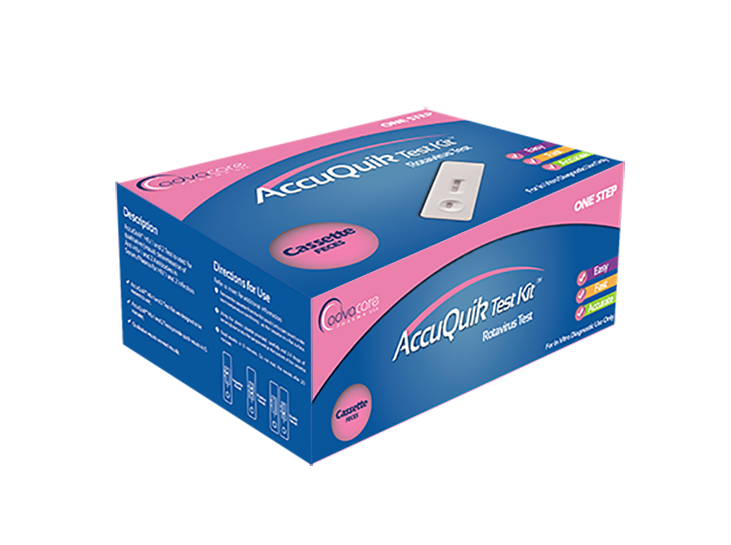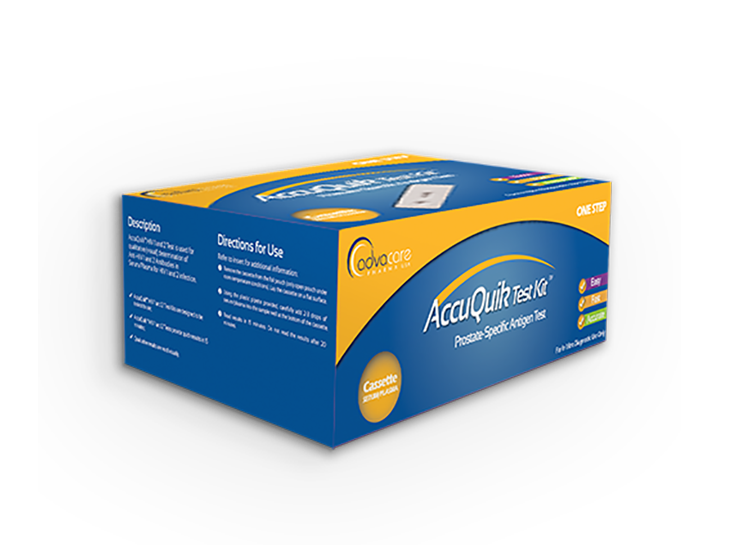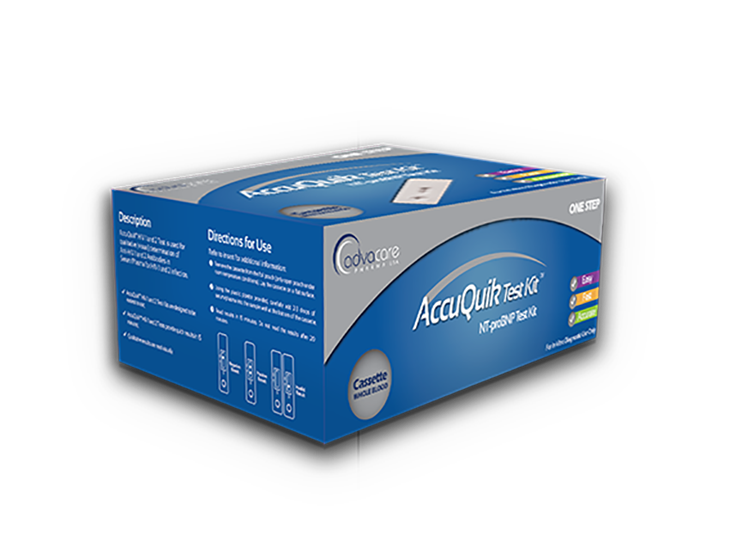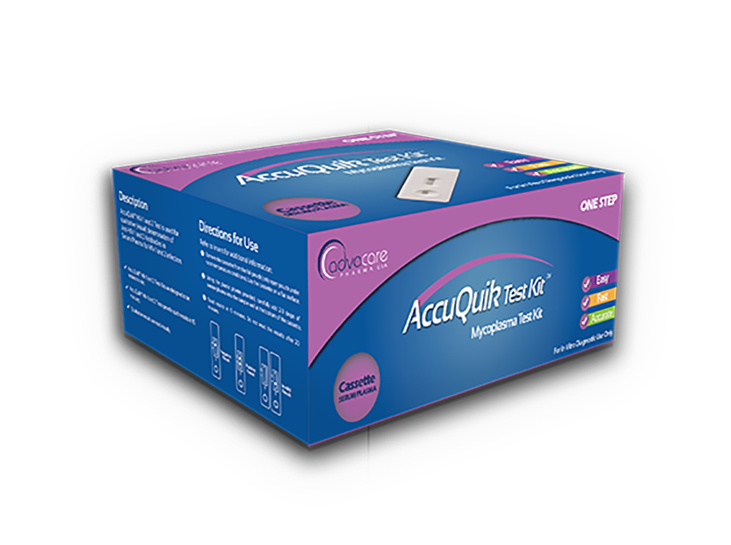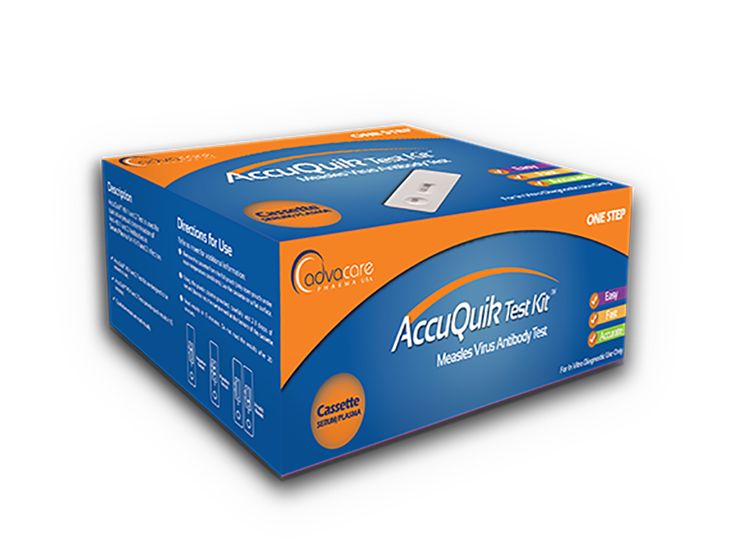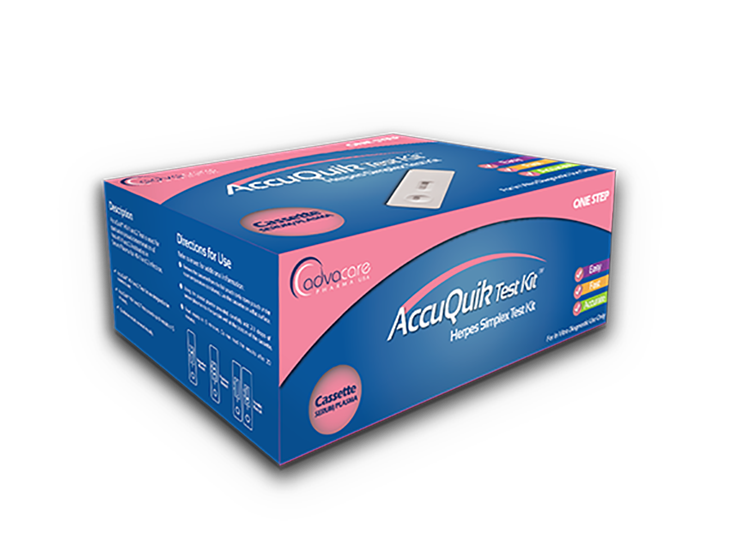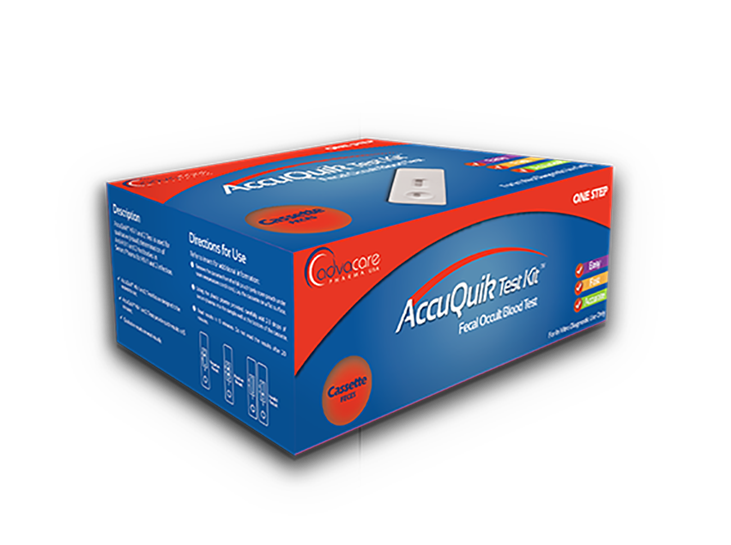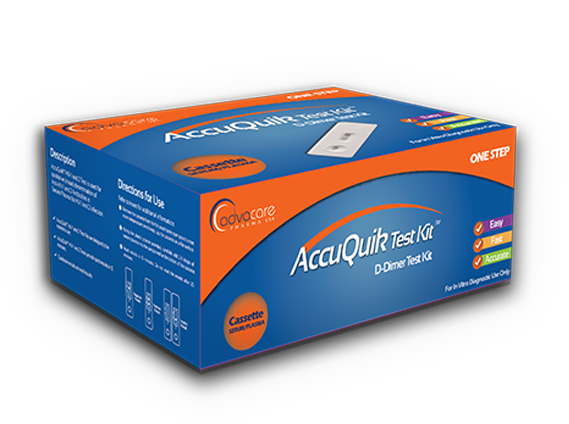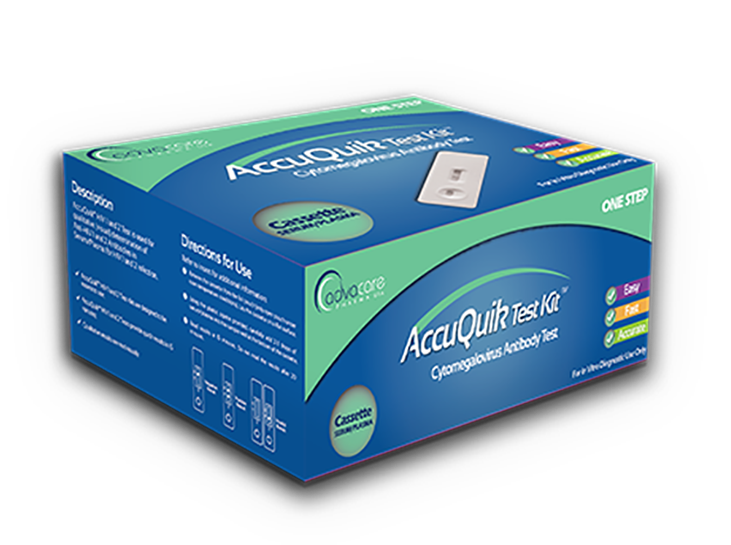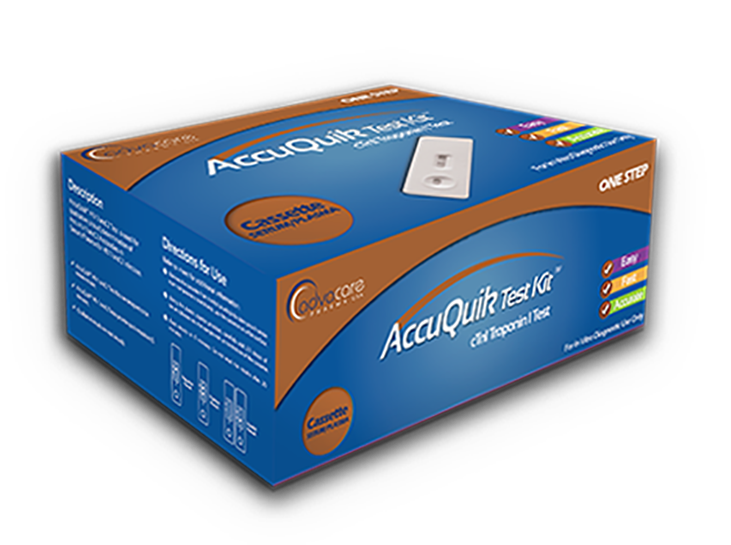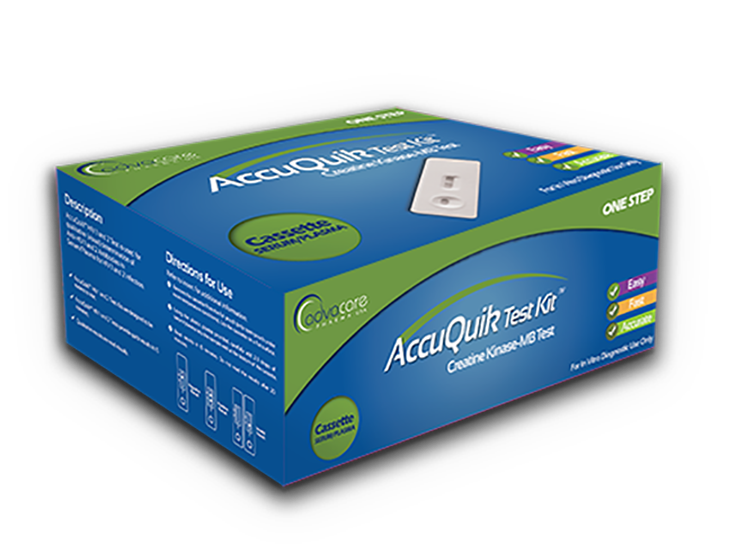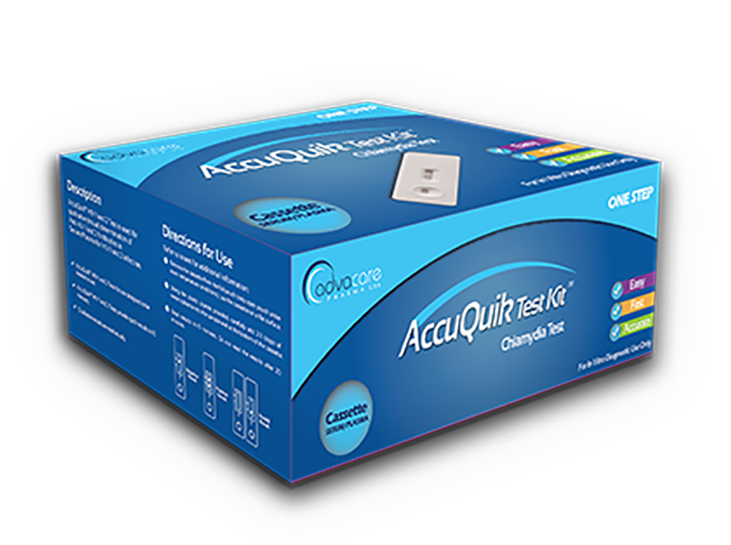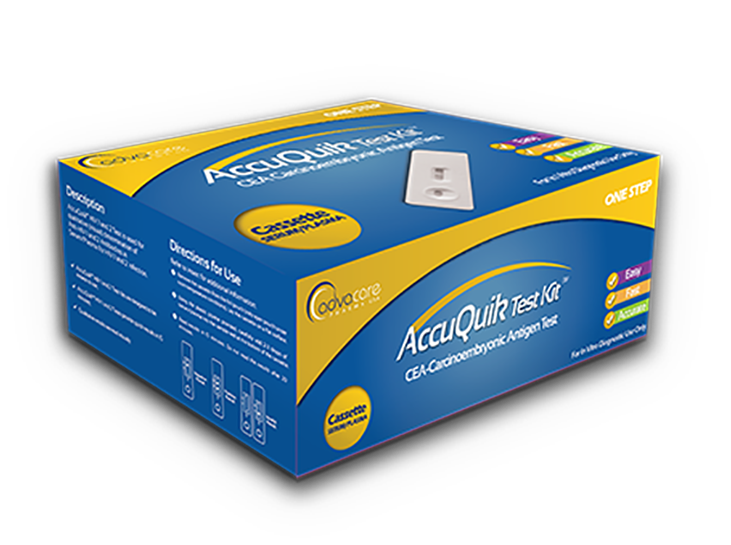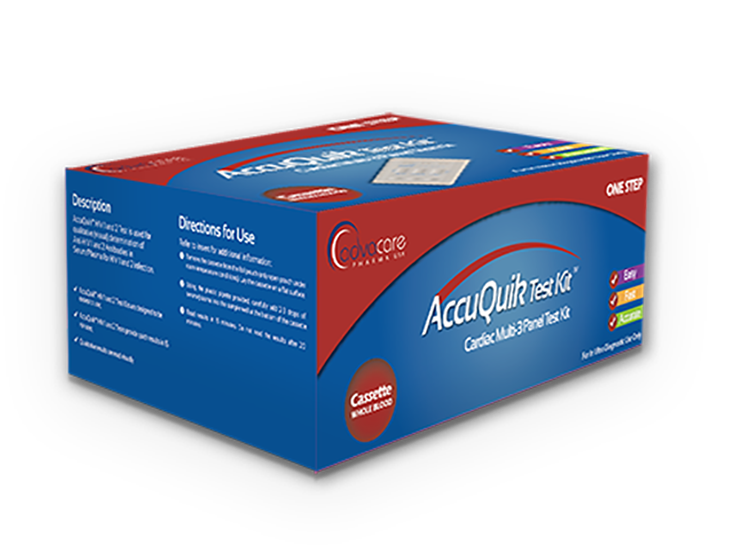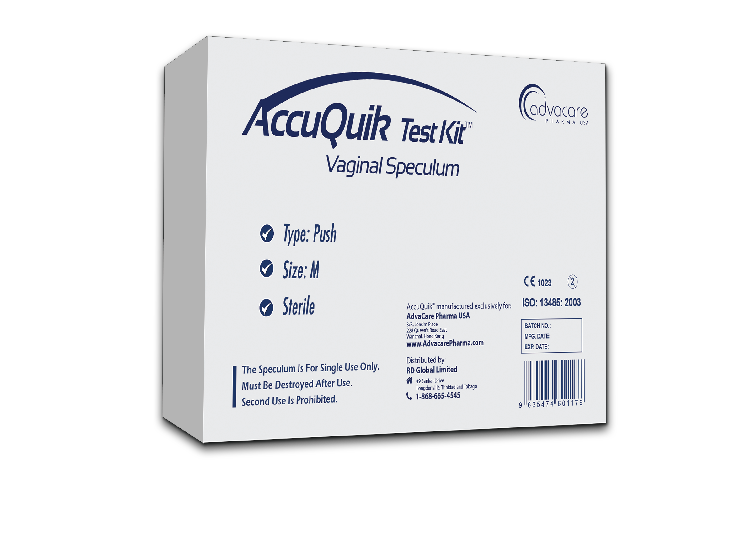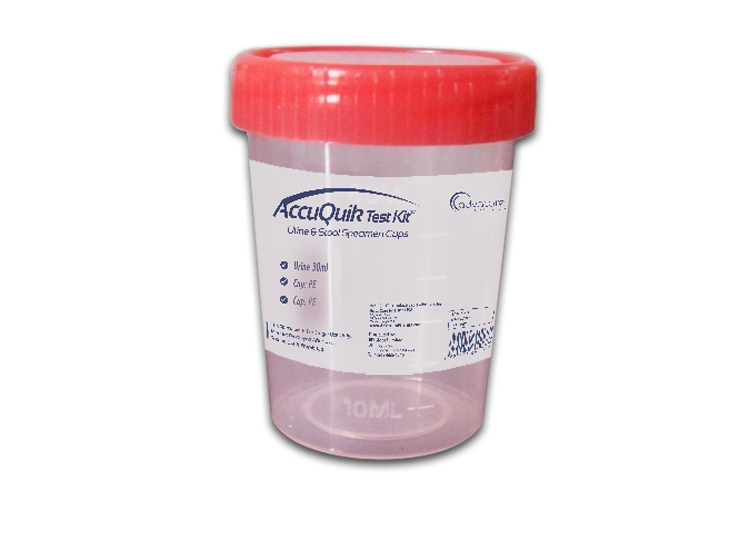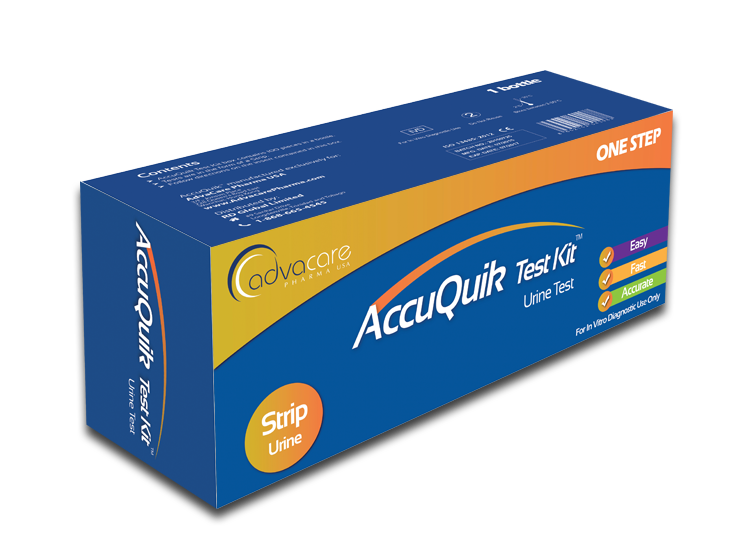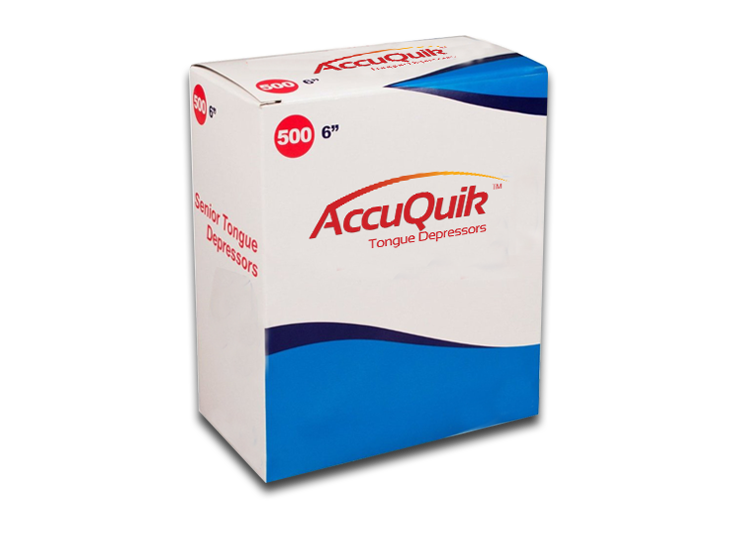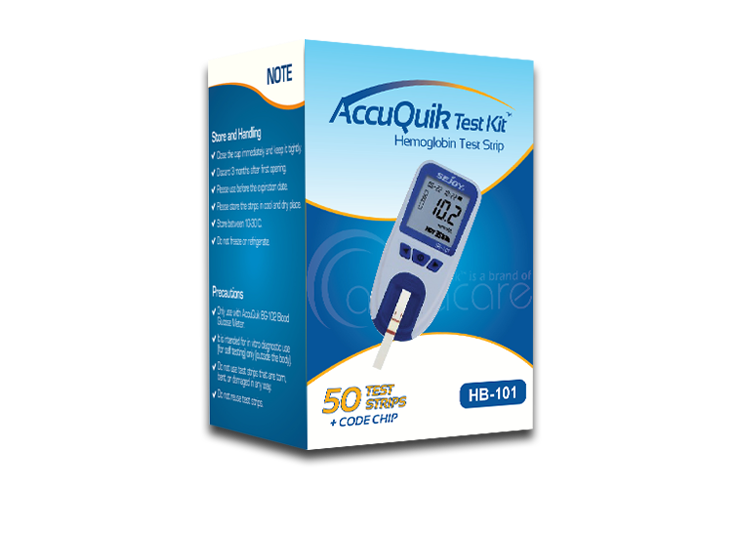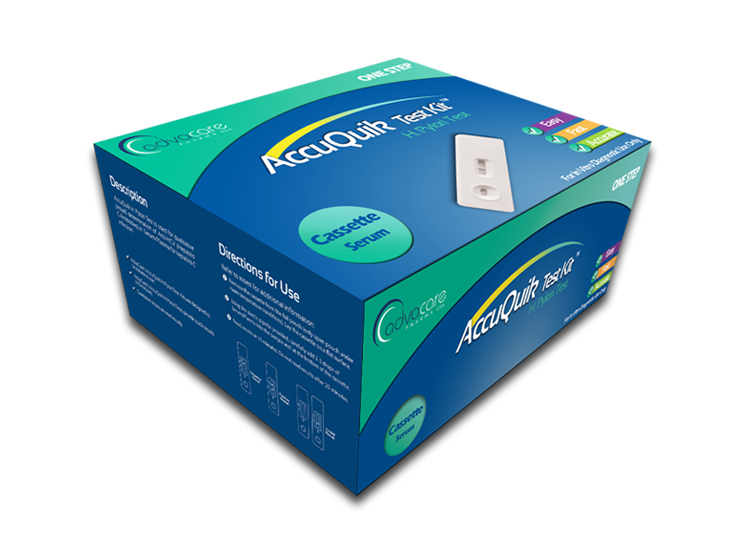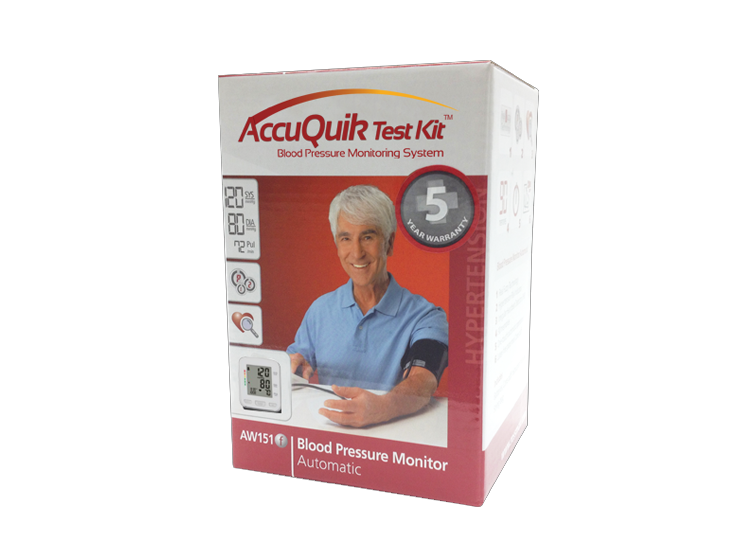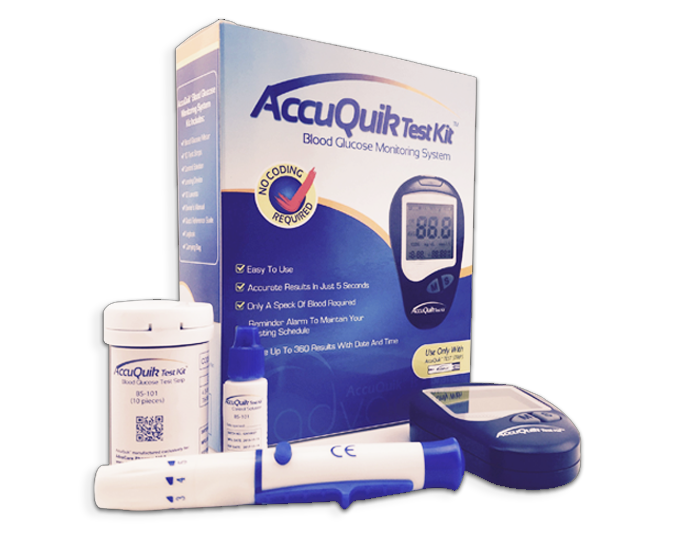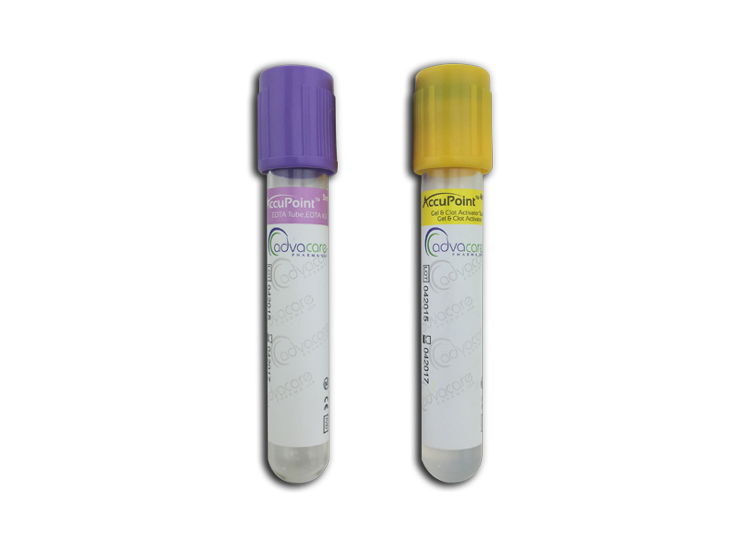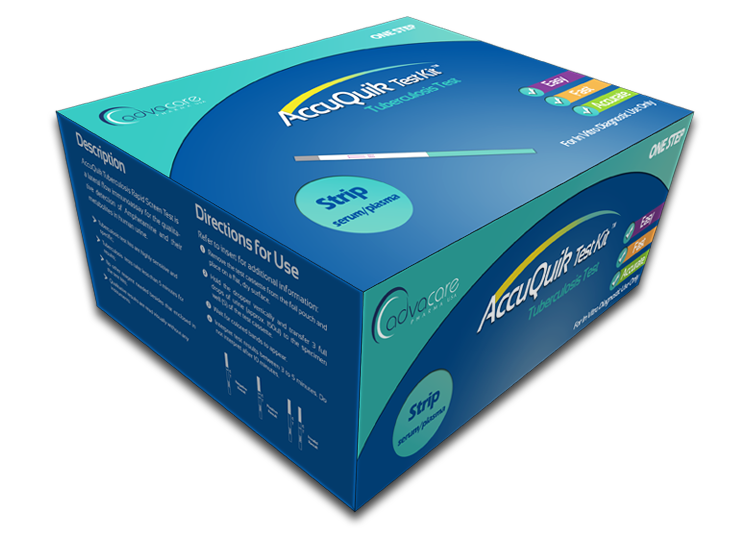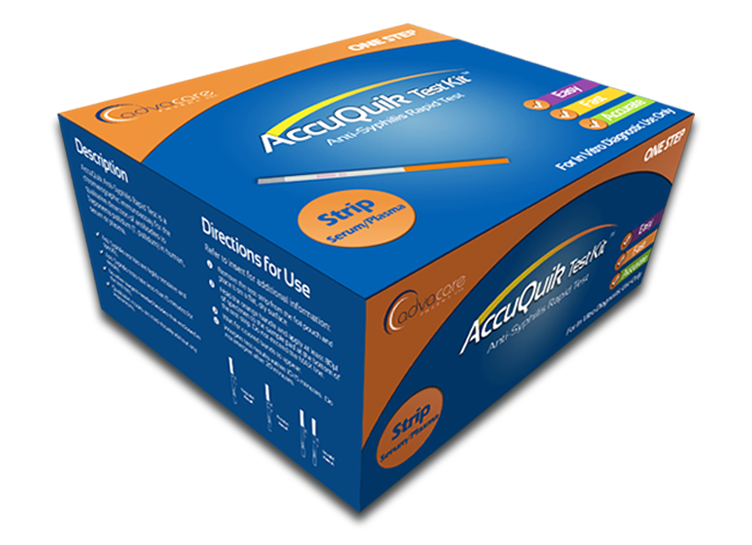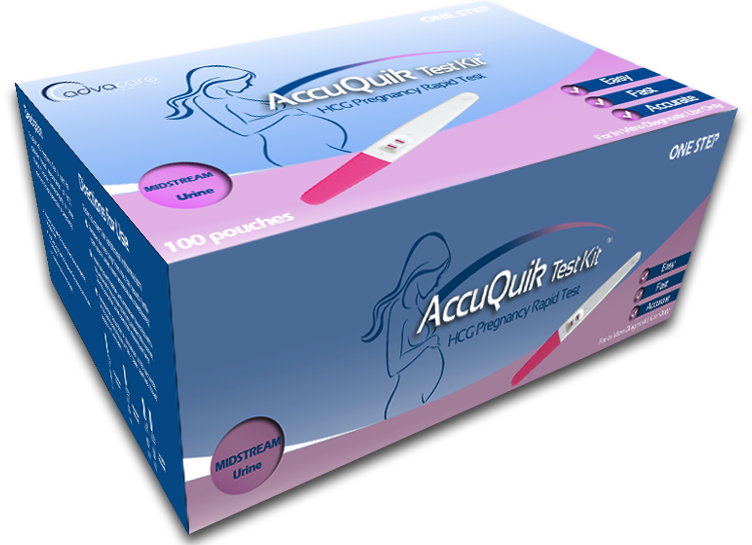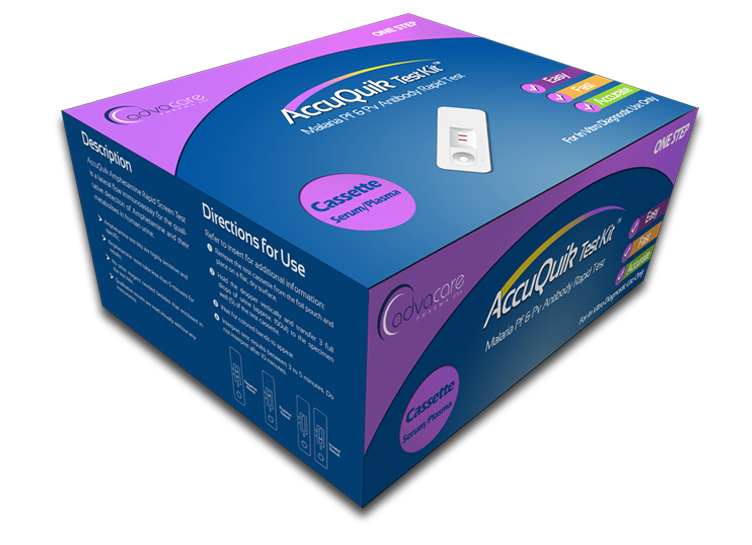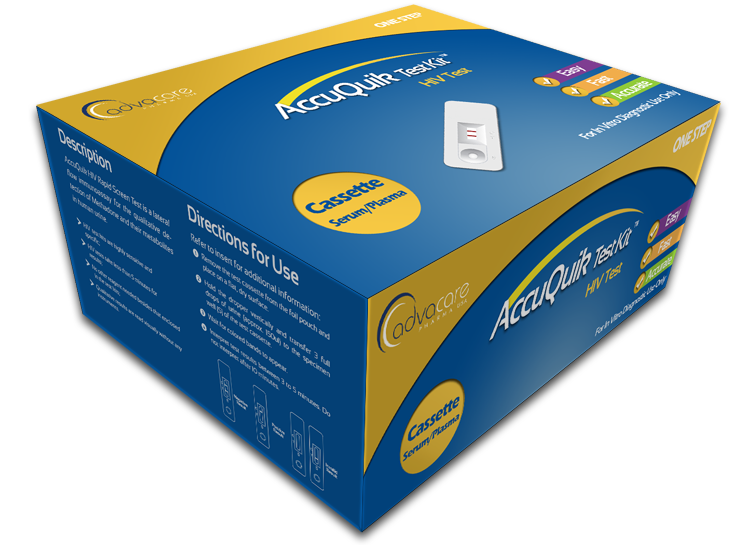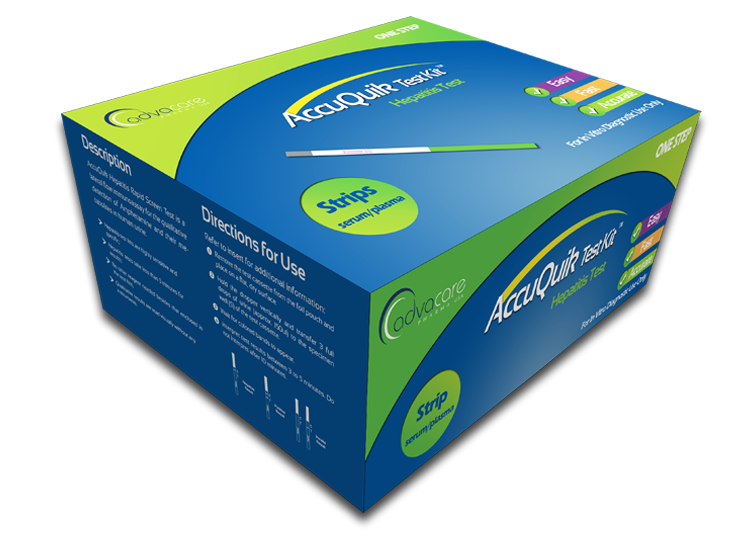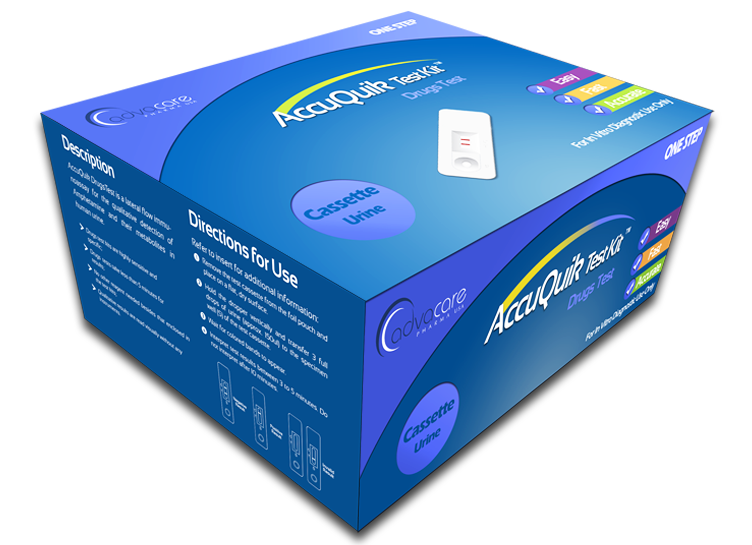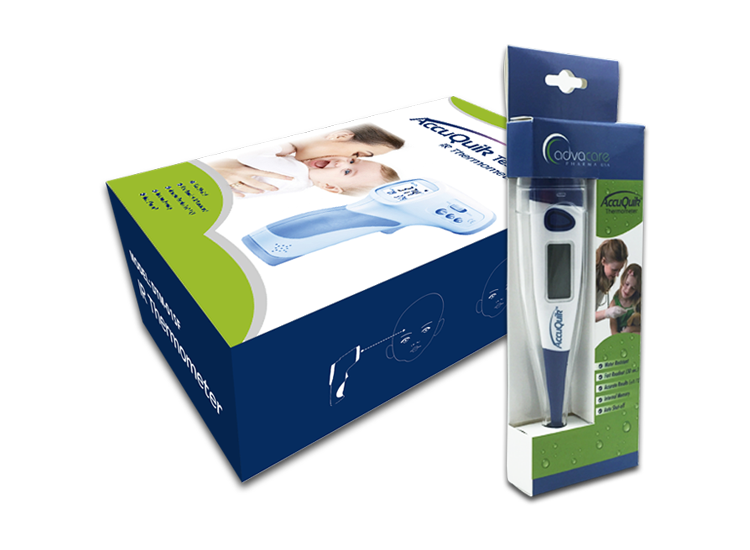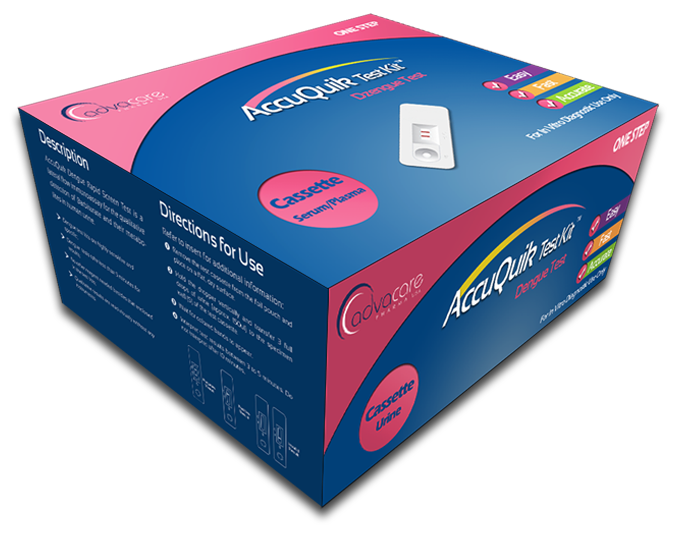More Information about the Adenovirus Test Kit
Adenovirus Test
Available as cassette

Adenovirus diagnostic test detects the presence of double-stranded DNA viruses discovered in the adenoid tissue. So far, there are 47 distinct serotypes of the adenovirus that all share a common hexon antigen. The test kit detects the presence of this antigen in stool samples, and therefore also determines if the virus is present or not. The test kit comes in the form of cassette and is able to show results within 5 to 10 minutes. If the virus antigens are detected, an indicator line will appear on the test. If no antigens are present or the levels of antigens are lower than the detection limit, a red control line will appear in the cassette window. The test is invalid if neither line appears.
AccuQuik™ promotes the use of Adenovirus rapid diagnostic test.
The Disease
General Information
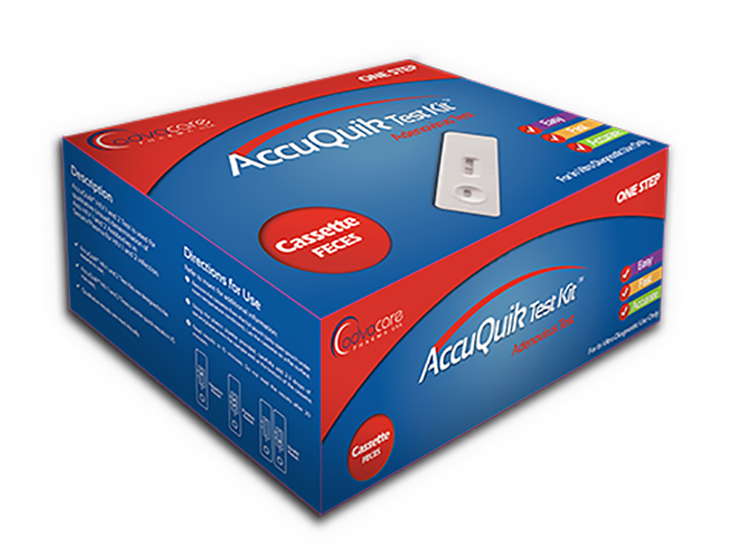
Adenovirus is one of the most common causes of infections of the respiratory system, conjunctiva, and gastrointestinal tract. Infection of the virus can cause diarrhea, conjunctivitis, cystitis, and others. The most common symptom of the virus is diarrhea, that can last up to 9-12 days. Other symptoms like fever or vomiting can also be found. Currently, it is the second leading cause of viral gastroenteritis in children. It is also estimated to be the cause of 2% to 5% of all respiratory infections.
The infection of adenovirus is usually caused by transmission from an infected individual though close personal contact, such as hand shaking, touching, or droplets transmission through coughs and/or sneezes.
Treatments
While common, most adenovirus infections do not require serious hospitalization and medication. Most cases are mild and may only require simple care to relieve symptoms. Use of over-the-counter pain medicines or fever reducers can be applied to relieve symptoms. If symptoms worsen, consultation with the doctor might be necessary to prevent severe dehydration and disorders of electrolyte balance. Currently, vaccines for adenovirus are only available for US military personnel ages 17 to 50 who may be at higher risk of infection. Vaccines are not available for the general public yet. Adenovirus outbreaks can be prevented by environmental cleaning, contact and droplet precautions, and prompt reporting and responses to clusters of cases.

